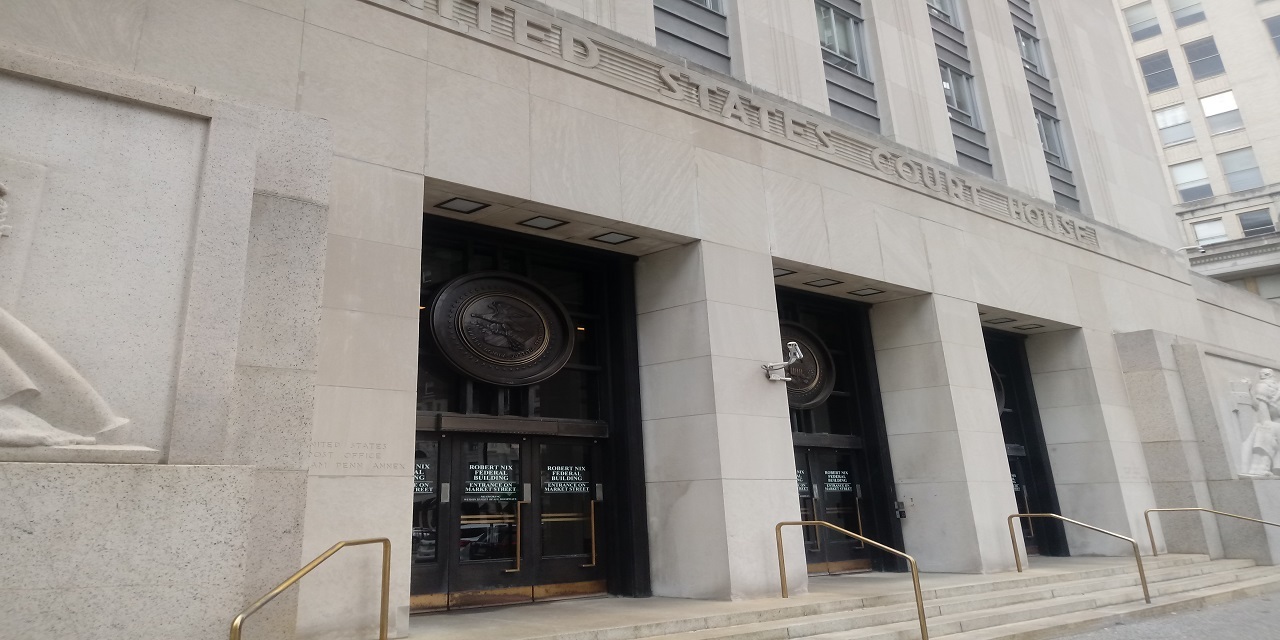PHILADELPHIA (Legal Newsline) - The U.S. Navy has won a key victory in Pennsylvania as a judge recently dismissed a lawsuit over the ubiquitous chemicals known as PFAS after finding they weren’t defined as “hazardous” under the state’s toxic waste statute.
Two days later DuPont suffered a major loss when the U.S. Court of Appeals for the Sixth Circuit rejected its petition for an emergency reversal of a lower court’s summary judgment preventing the company from relitigating claims it lost in previous trials. The appeals court noted that grants of mandamus are extremely rare and DuPont can appeal any decisions after trial.
Even the Navy’s victory may be short-lived as states and the federal government consider adding PFAS to the list of hazardous substances. The chemicals, widely used in everything from non-stick pans to airport firefighting foam, leach readily into groundwater and trace amounts can be found in nearly every person in the U.S.
As part of a 2005 settlement of a class action in West Virginia, DuPont paid for a panel of experts to conduct a study of the effects of PFAS, which concluded in 2013. That study found statistical correlations between the chemicals and a handful of conditions including testicular cancer and high blood pressure, although correlation doesn’t mean causation and at least one expert has described the science linking PFAS and disease as “really lousy.”
In his Jan. 15 ruling, U.S. District Judge Gerald J. Pappert accepted as true the allegations of homeowners near the Navy’s Willow Grove and Warminster facilities in Pennsylvania that they had been exposed to potentially dangerous chemicals from well water contaminated with PFAS. The Third Circuit had ruled that federal law stripped the Navy of sovereign immunity from lawsuits seeking payment for medical monitoring.
The plaintiffs were suing under Pennsylvania’s Hazardous Sites Cleanup Act, however, which covers chemicals “designated” or “defined” as hazardous. Since PFAS has not been legally defined as hazardous, the judge ruled, the case must be dismissed.
The plaintiffs argued in favor of a broader reading of “hazardous.” They also urged the judge to allow the case to proceed because state and federal governments are “well on their way to classifying PFAS as hazardous substances.” The judge earlier had rejected the Navy’s request to delay the trial pending the potential classification of PFAS, and he rejected the plaintiffs’ plea as well.
“The issue is not whether someone in Harrisburg or Washington may someday mold the law to Plaintiffs’ current theory,” he wrote. “The issue is whether the Plaintiffs can state a claim for relief under the current law; indeed, it is the Court’s duty to decide cases based on what the law is, not what the law may be at some point in the future.”
Democrats in Congress made a strong push to have PFAS certified as hazardous under the Comprehensive Environmental Response, Compensation, and Liability Act of 1980 (CERCLA) as part of a massive appropriations bill last year but the language was dropped.
With thousands of different chemicals falling under the definition of PFAS, a declaration under CERCLA could unleash litigation that costs companies and municipal water systems trillions of dollars in legal and cleanup costs. A federal judge in Ohio, meanwhile, has allowed plaintiffs to proceed with a potential class action on behalf of virtually everyone in the U.S. Lawyers in that class want another science panel that would produce results that could be used in yet more litigation.
DuPont tried to slow down the PFAS litigation against it by forcing plaintiffs to prove anew allegations including it was negligent in releasing the chemicals from manufacturing facilities in Ohio. The company argued to the Sixth Circuit that the judge overseeing continuing multidistrict litigation against it erred by allowing plaintiffs to exercise “nonmutual, offensive issue preclusion,” a legal tactic preventing DuPont from raising certain defenses because they had already been decided in earlier trials.
DuPont said this skewed the process of using bellwether trials in favor of the plaintiffs. However, DuPont can appeal the judge’s rulings after the conclusion of the next round of trials, the appeals court said.
“DuPont has not shown that this problem is so urgent that it requires immediate intervention in the form of mandamus,” the court said.
